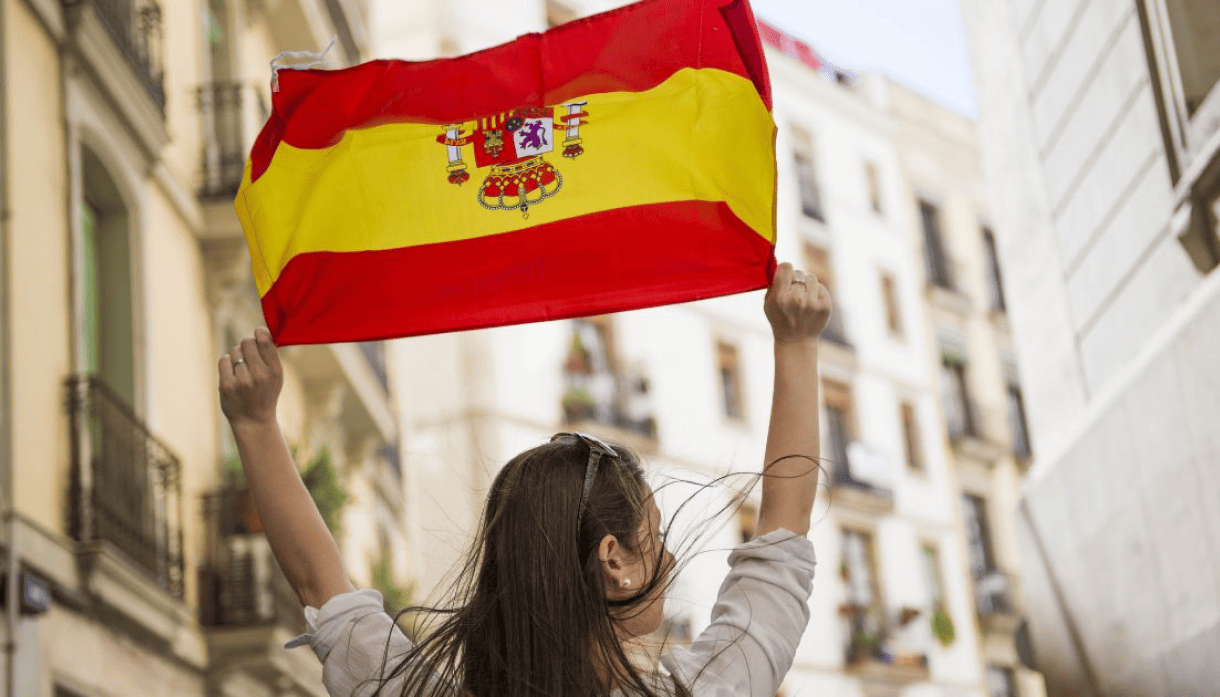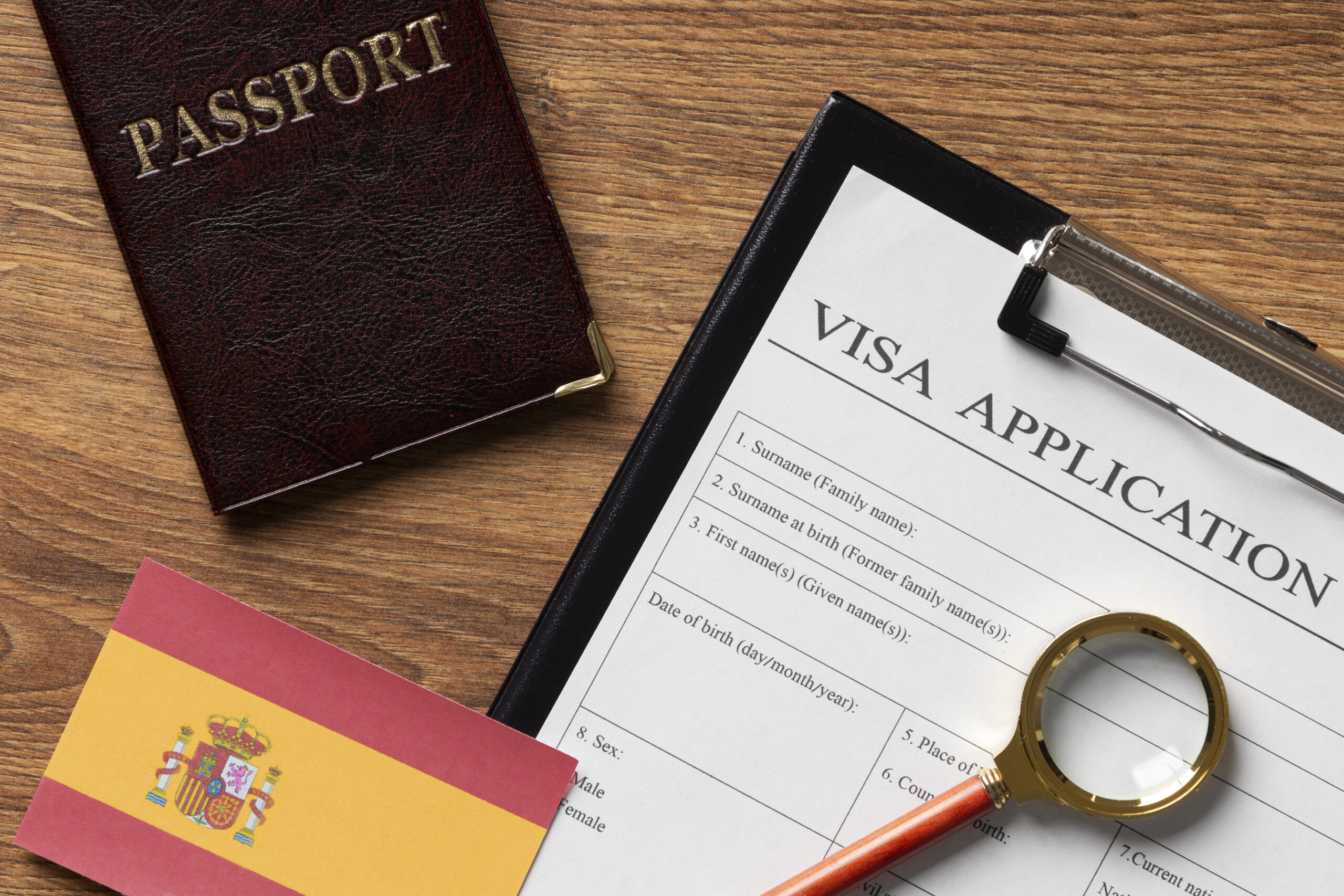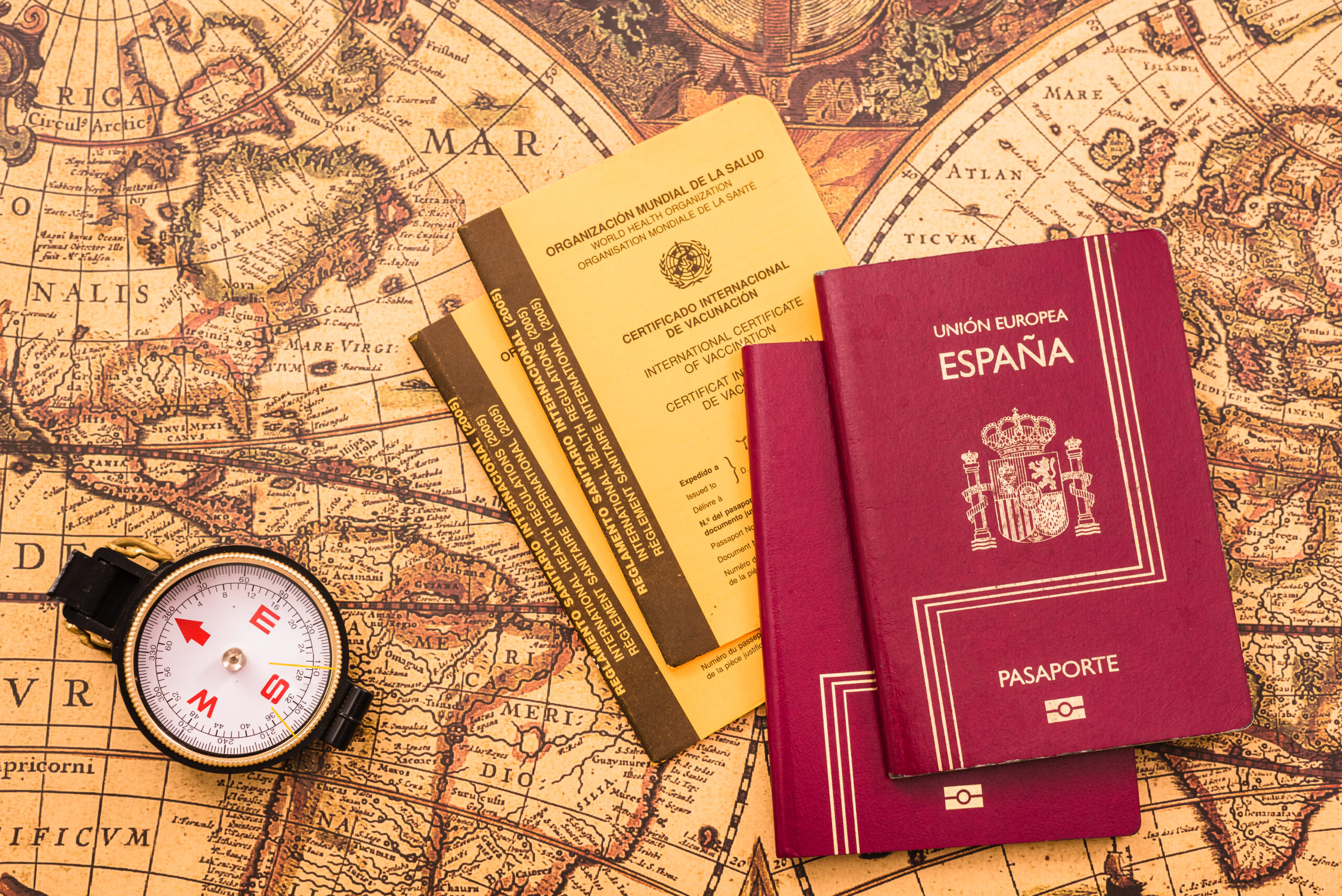تأشيرة البدو الرقمية والضرائب في إسبانيا: 7 أشياء يجب أن تعرفها
- الرئيسية
- تأشيرة البدو الرقمية والضرائب في إسبانيا: 7 أشياء يجب أن تعرفها

تأشيرة البدو الرقمية والضرائب في إسبانيا: 7 أشياء يجب أن تعرفها
ن السنوات الأخيرة, برزت إسبانيا كنقطة جذب للبدو الرقميين الذين يتطلعون إلى الجمع بين العمل وأسلوب الحياة. مفهوم العمل عن بعد أثناء الاستمتاع بشواطئ إسبانيا المشمسة, مدن نابضة بالحياة, وقد اجتذبت الثقافة الغنية المهنيين من جميع أنحاء العالم. وقد استجابت إسبانيا لهذا الطلب من خلال تقديم تأشيرة البدو الرقمية, a legal pathway allowing remote workers to reside in Spain for extended periods while working for non-Spanish companies. Alongside this visa, understanding Spain’s tax regulations is crucial to ensure compliance and avoid any legal complications. في هذا الدليل التفصيلي, we will discuss seven key things you must know about the تأشيرة البدو الرقمية والضرائب في إسبانيا before embarking on your journey.
1. What is the Digital Nomad Visa and Tax in Spain?

ال Digital Nomad Visa in Spain is a specialized visa category that allows foreign nationals to reside in Spain while working remotely for companies located outside Spain. Launched in response to the growing demand for flexible work opportunities, this visa is perfect for freelancers, remote workers, and entrepreneurs who wish to experience life in Spain without needing a traditional work visa tied to a local employer.
To qualify for the Digital Nomad Visa في اسبانيا, applicants must prove that they have a remote job or run a business that allows them to operate from any location. The primary condition is that the company or clients the applicant works with must be based outside of Spain. Moreover, the visa is typically issued for an initial period of one year but can be renewed depending on the individual circumstances.
Spain’s Digital Nomad Visa provides an excellent opportunity for those who want to enjoy the perks of living in a European Union (الاتحاد الأوروبي) country while continuing to work for their overseas employers. With its affordable cost of living, high quality of life, and a dynamic digital infrastructure, Spain is an attractive destination for remote professionals seeking to live and work abroad.
2. Eligibility Criteria for the Digital Nomad Visa in Spain
To qualify for the Digital Nomad Visa in Spain, there are several criteria that applicants must meet. One of the primary conditions is that the applicant must be employed by a company outside Spain or run a business that operates outside of the country. Self-employed professionals are also eligible as long as their clients are not Spanish-based. The key requirements include:
- Proof of remote employment or self-employment.
- A valid contract with an employer outside Spain, or evidence of freelance work.
- A steady income that demonstrates the ability to support oneself while living in Spain.
- Health insurance that covers medical expenses in Spain.
- No criminal record in Spain or the applicant’s home country.
بالإضافة إلى ذلك, applicants must provide evidence of sufficient funds to support themselves during their stay. This financial requirement ensures that digital nomads can comfortably live in Spain without relying on local welfare systems. The exact amount varies depending on family size and length of stay, but it generally involves showing a minimum income threshold.
Once the Digital Nomad Visa in Spain is granted, it allows remote workers to enjoy the full benefits of residing in Spain, including access to local healthcare and the possibility of moving freely across Schengen Area countries.
3. Tax Implications for Digital Nomads in Spain
One of the most important aspects of moving to Spain with a Digital Nomad Visa is understanding the country’s tax regulations. While the visa allows you to live and work remotely in Spain, it also means that you might be subject to local taxes, depending on your residency status.
Under Spanish tax law, you are considered a tax resident if you spend more than 183 days within a calendar year in the country. As a tax resident, your worldwide income becomes subject to Spain’s tax system. This includes income earned from your remote work, even if your employer or clients are based outside of Spain.
Spain operates on a progressive tax system, with rates that can range from 19% ل 47% depending on your total income. This can have significant financial implications for digital nomads, especially those earning high incomes. لكن, Spain does offer a special tax regime for certain expatriates, known as the “Beckham Law,” which allows qualifying individuals to be taxed at a flat rate of 24% on income up to a certain threshold for a limited time.
Understanding your tax liability before relocating to Spain is crucial, and it’s highly recommended that digital nomads seek advice from a tax professional familiar with both Spanish and international tax laws. Failure to comply with tax obligations can result in fines or legal issues, so thorough planning is essential for a smooth transition to life under the Digital Nomad Visa in Spain.
4. The “Beckham Law” and its Benefits for Digital Nomads

For digital nomads who become tax residents in Spain, there is a potential tax break that could significantly reduce their tax burden: ال “Beckham Law.” Named after the famous footballer who benefited from this regime during his time playing in Spain, the Beckham Law was initially created to attract highly skilled foreign workers and executives to Spain.
Under this regime, individuals who qualify are taxed at a flat rate of 24% on their income up to €600,000. This tax regime is particularly beneficial for high-earning digital nomads who want to avoid Spain’s progressive income tax rates, which can be much higher for top earners. ال Digital Nomad Visa in Spain may allow you to take advantage of this scheme, but there are specific eligibility criteria to meet:
- You must not have been a tax resident of Spain for at least 10 years before applying.
- You must apply for the Beckham Law status within six months of becoming a tax resident.
- Your income must primarily come from work performed for a company located outside of Spain.
By taking advantage of the Beckham Law, digital nomads can potentially lower their tax liabilities while enjoying all the benefits of living in Spain. لكن, the law is subject to changes, and its application can be complex, so seeking advice from a tax expert is recommended.
5. Healthcare Access for Digital Nomads with the Digital Nomad Visa in Spain
One of the key concerns for digital nomads moving abroad is healthcare access. لحسن الحظ, Spain offers excellent healthcare services, and digital nomads on the Digital Nomad Visa in Spain can access both public and private healthcare systems. لكن, the level of access you have to public healthcare will depend on your residency status and the type of visa you hold.
While some digital nomads may be able to access Spain’s public healthcare system by making social security contributions, others may need to rely on private health insurance. As part of the visa application process, applicants must show proof of comprehensive health insurance that covers them during their stay in Spain. Many digital nomads opt for international health insurance plans that provide coverage in multiple countries, ensuring that they are protected whether they are in Spain or traveling elsewhere.
Spain’s healthcare system is known for its high standards, and both public and private healthcare providers offer excellent care. Private health insurance may offer shorter wait times and access to English-speaking doctors, making it a popular choice for expatriates and digital nomads. When applying for the Digital Nomad Visa in Spain, it’s essential to factor in the cost of healthcare and ensure that your insurance plan meets all legal requirements.
6. How Long Can You Stay in Spain with the Digital Nomad Visa?
ال Digital Nomad Visa in Spain is typically granted for an initial period of one year, with the possibility of renewal. After the first year, digital nomads can apply to extend their visa for additional years, provided they continue to meet the visa’s requirements. This flexibility allows digital nomads to enjoy an extended stay in Spain while maintaining their remote work.
The total duration of your stay in Spain will also influence your tax obligations. As mentioned earlier, spending more than 183 days in Spain within a calendar year will make you a tax resident. Digital nomads who plan to stay in Spain for shorter periods may be able to avoid tax residency status and the associated tax liabilities. لكن, it’s important to track your days in the country and understand the legal implications of your stay under the Digital Nomad Visa in Spain.
In some cases, digital nomads may choose to split their time between Spain and other countries to minimize their tax obligations. This can be a viable strategy, but it requires careful planning and a clear understanding of the residency rules in both Spain and any other countries involved.
7. Lifestyle Benefits of Living in Spain as a Digital Nomad

One of the biggest draws of the Digital Nomad Visa in Spain is the incredible lifestyle that the country offers. Spain is renowned for its warm climate, الشواطئ الجميلة, مدن نابضة بالحياة, and rich cultural heritage. Whether you choose to settle in a bustling metropolis like Barcelona or Madrid, or a more laid-back coastal town like Valencia or Málaga, you’ll find plenty to enjoy during your stay.
Spain’s cost of living is relatively affordable compared to other Western European countries, making it an attractive destination for digital nomads. The country also boasts excellent infrastructure, including fast and reliable internet, which is essential for remote work. Moreover, Spain’s well-connected transportation system makes it easy to explore the rest of Europe during your time off.
Beyond work, digital nomads in Spain can enjoy a relaxed lifestyle with a strong emphasis on work-life balance. The country’s social culture, delicious cuisine, and numerous outdoor activities provide endless opportunities for relaxation and adventure. With the Digital Nomad Visa in Spain, you can experience the best of both worlds—continuing your career while immersing yourself in a new and exciting environment.
خاتمة
ال Digital Nomad Visa in Spain is a game-changer for remote workers who want to live and work in one of Europe’s most beautiful and dynamic countries. From the application process to the tax implications, understanding the key aspects of this visa will ensure that your transition to life in Spain is smooth and hassle-free. Whether you’re attracted by the cultural richness, warm weather, or the opportunity to explore new professional horizons, Spain offers an ideal setting for digital nomads. By staying informed about your visa requirements, tax obligations, and lifestyle options, you can make the most of your time in Spain while complying with local laws.
We also recomend you to read
سفارة اسبانيا في تركيا: أفضل 5 الأشياء التي يجب أن تعرفها قبل التقديم
الهجرة الى اسبانيا | كل ما تريد معرفته عن السفر إلى إسبانيا 2025




 اتصل بنا
اتصل بنا 






